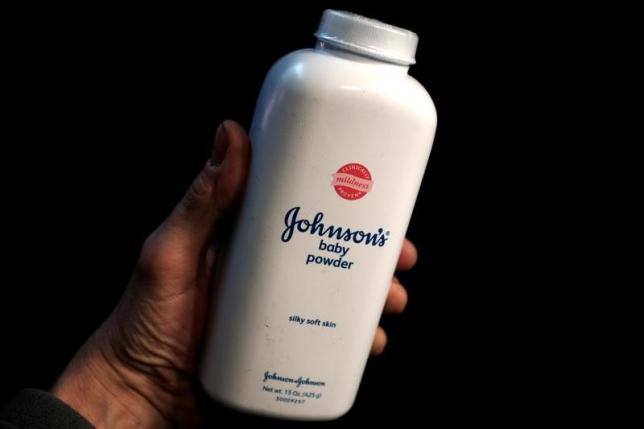Johnson & Johnson, the makers of Johnson’s Baby Powder and Shower-to-Shower Body Powder, has been ordered to pay $9 million in damages to a woman who alleges that years of exposure to asbestos in the company’s talc-based powders caused her to develop mesothelioma. This is the second talcum powder cancer trial Johnson & Johnson has lost in less than a month, the first resulting in a $750 million jury award, and the company still faces approximately 18,000 lawsuits currently pending in courts across the country. Each lawsuit involves similar allegations that Johnson & Johnson has known for decades that its talcum powder products may put users at risk for cancer from asbestos exposure, yet failed to warn consumers about this risk. If you have been diagnosed with mesothelioma or another type of cancer and you believe Johnson’s Baby Powder or Shower-to-Shower Body Powder to be the culprit, our consumer advocates at Leading Justice can help. Contact us today to speak to a talcum powder cancer attorney about your claim.
Link Between Talcum Powder and Cancer
When it comes to healthcare and baby products, Johnson & Johnson is a household name, with trusted products that include its widely used Baby Powder and Shower-to-Shower Body Powder products. However, the company has faced a great deal of criticism in recent years, due to mounting allegations that Johnson’s talc-based Baby Powder and Shower-to-Shower Body Powder products may expose users to an increased risk of cancer with frequent and prolonged use. Most of the legal claims pending against Johnson & Johnson have been filed on behalf of women who were diagnosed with ovarian cancer after years of using the company’s talc-based powders for feminine hygiene purposes. However, a growing number of claims involve consumers diagnosed with mesothelioma, a rare but deadly form of cancer that is only known to occur as a result of exposure to asbestos.
During this latest talcum powder asbestos trial, plaintiff Blanca Mure-Cabrera claimed that Johnson & Johnson knew about the link between its talcum powder products and cancer, yet withheld this information from consumers and the medical community, thereby putting its profits ahead of consumer safety. After hearing testimony that Johnson & Johnson was aware since at least the 1960s that talc mined for its talcum powder products contained trace amounts of asbestos, a known carcinogen, the Miami jury agreed with Mure-Cabrera, awarding her $9 million in damages. In early February, another jury in New Jersey ordered Johnson & Johnson to pay $750 million in punitive damages to four plaintiffs diagnosed with mesothelioma, on top of the $37.2 million in compensatory damages awarded to the plaintiffs in their talcum powder lawsuit in September. Johnson & Johnson also recently settled a talcum powder mesothelioma lawsuit that was scheduled to go to trial in New York state court.
J&J Faces DOJ Criminal Probe
In addition to the thousands of civil claims currently pending against Johnson & Johnson, the pharmaceutical giant also faces a criminal probe by the U.S. Department of Justice, which is investigating whether the company knew that its talcum powder products were contaminated with asbestos or asbestos-like particles for years. According to internal documents uncovered during the ongoing talcum powder litigation, three different laboratory tests conducted between 1972 and 1975 identified asbestos particles in Johnson & Johnson’s talc supply, but the company allegedly kept this information from the FDA. Other reports suggest that Johnson & Johnson was aware of problems with asbestos contamination as early as 1957, yet the company continued selling its talcum powder products for decades, without providing warnings about the potential risk of cancer from asbestos exposure. In fact, Johnson & Johnson has spent years insisting that its Baby Powder and Shower-to-Shower Body Powder products are asbestos-free, despite evidence suggesting otherwise.
Johnson’s Baby Powder Recalled for Asbestos Contamination
In October 2019, Johnson & Johnson was forced to issue a Baby Powder recall affecting 33,000 bottles of the product, after FDA testing identified traces of asbestos contamination in samples taken from a bottle purchased from an online retailer. Johnson’s issued the recall voluntarily, “out of an abundance of caution,” but refused to admit that the asbestos contamination means its products aren’t safe for consumer use. In fact, the company ramped up its efforts to demonstrate the safety of its talcum powder products, questioning the validity of the FDA test and stating that Johnson’s “has a rigorous testing standard in place to ensure its cosmetic talc is safe and years of testing, including the FDA’s own testing on prior occasions–and as recently as last month–found no asbestos.” Still, with a Baby Powder asbestos recall in place and internal documents suggesting that Johnson & Johnson executives knew for decades that their products contained asbestos and could increase the risk of cancer, things are looking good for plaintiffs in the thousands of talcum powder cancer lawsuits pending in courts across the country.




